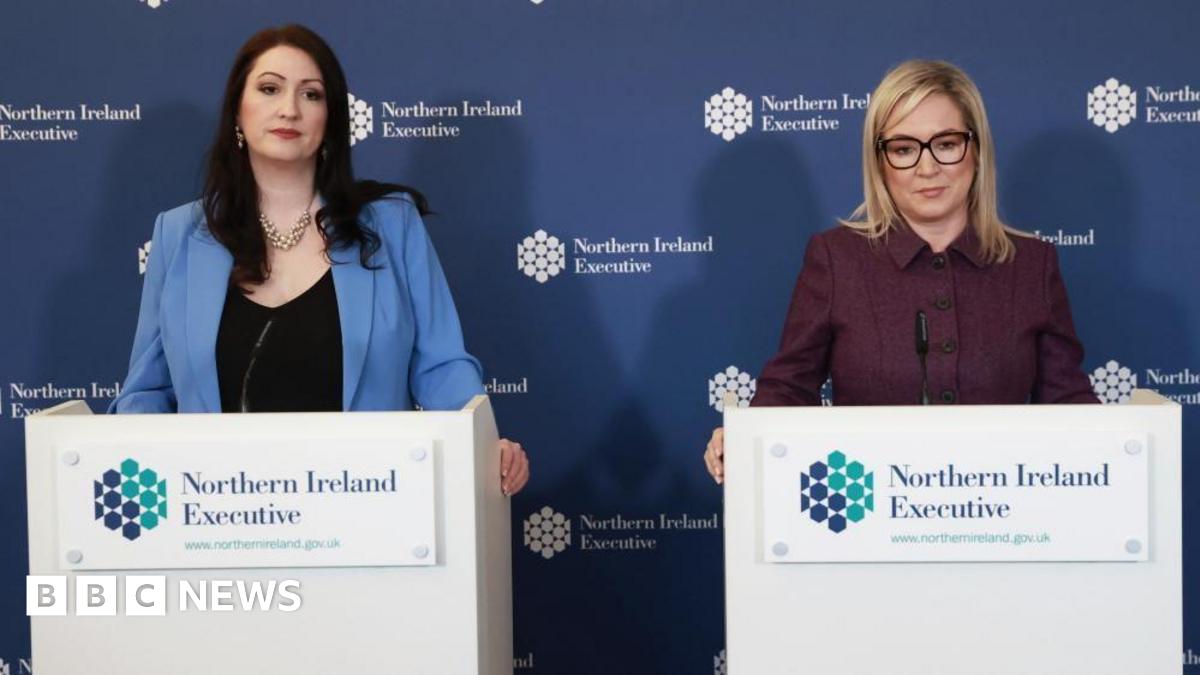TUV Leader’s Stance on Northern Ireland’s Participation in UK-Wide Healthcare Initiative
On a crisp autumn morning in Belfast, the air buzzes with a sense of urgency. Jim Allister, leader of the Traditional Unionist Voice (TUV), stands resolute during a gathering, voicing concerns about an initiative that has sparked heated debates across the UK. Allister asserts that while it is “right” for Northern Ireland to partake in a UK-wide scheme to provide healthcare, he echoes a firm sentiment—that those seeking treatment should not acquire residency rights upon their arrival.
The Humanitarian Crisis Unfolding in Gaza
Amid the tense political landscape, the humanitarian crisis in Gaza continues to escalate. As reports emerge of children suffering from starvation, malnutrition, and a dire lack of medical supplies, the contrast between Allister’s strict stance and the pleas for compassion draws attention. Declan Kearney, a Sinn Féin MLA, characterized the situation as “beyond anything witnessed in recent times.” He implores the executive to assist in evacuating sick and injured children from the war-torn region, stating, “The inhumane blockade must end immediately.”
The Diverging Political Perspectives
Responses to the proposal reveal stark political divides. Allister emphasizes that treatment should be temporary: “When they come for treatment, they have their treatment, and they return. The UK cannot take any more asylum seekers or migrants.” This viewpoint aligns with sentiments expressed by some constituents who believe that any policy shift could encourage the influx of asylum seekers.
Conversely, Kearney’s advocacy highlights a moral imperative. He underscores that the destruction in Gaza must be met with a proactive humanitarian response. “Starvation, malnutrition, and denial of access to water are being systematically used against children and women,” he asserts. His increasingly impassioned calls for an increase in humanitarian aid could underscore a trend among politicians looking to forge connections based on compassion rather than restriction.
The Impact on Northern Ireland’s Healthcare System
Alliance MLA Paula Bradshaw offers a pragmatic view, bridging the divide with a focus on the realities of healthcare delivery. “I don’t think it’ll make a big difference to services here in NI, but it’ll make a big difference to those individuals,” she explains. Her perspective, grounded in healthcare expertise, sheds light on the complexities involved. She advocates for Northern Ireland’s role in providing medical care to those in dire need, regardless of their origins.
- Increased need for medical assistance: The numbers of children and families seeking healthcare have surged due to escalating conflicts.
- Tenuous political climate: As local leaders voice their opinions, the political landscape grows increasingly complex.
- Healthcare resources stretched thin: Providers are grappling with the influx and its implications for Northern Ireland’s already-configured services.
Expert Insights
Dr. Fiona Murphy, an expert in international health policy, argues that “the healthcare response to global crises must be rooted in humanitarian principles.” Citing a study conducted by the Global Health Institute, she notes that investment in emergency healthcare infrastructures can yield long-term benefits for both host nations and those receiving care. “Northern Ireland’s participation could set a precedent for how we view and treat global health crises,” she adds.
Moreover, Professor James Ritchie, a political analyst, points out that Allister’s rigid stance may resonate with a specific voter base but risks alienating more progressive factions looking to leverage Northern Ireland’s healthcare capacity for broader humanitarian goodwill. “Allister’s resistance to residency rights could backfire politically,” Ritchie cautions, drawing upon polling data indicating that support for humanitarian efforts, particularly among younger voters, remains strong.
Balancing Compassion and Resource Constraints
The discussion branches into deeper themes about the responsibilities of government. While Allister’s assertions find purchase in concerns over unmanageable immigration, Kearney and Bradshaw emphasize ethical obligations. These conflicting narratives beg the question: how can Northern Ireland reconcile its healthcare provision capabilities with the ongoing demands of humanitarian crises?
As the Executive Office and the Department of Health remain silent on the subject, public discourse continues to unfold. Citizens in Northern Ireland are eager to see if their leaders can forge a cohesive response that balances compassion with practicality.
With winter approaching, the urgency of both the healthcare initiative and the humanitarian crisis intensifies. The leaders’ differing visions will ultimately shape how Northern Ireland navigates its role on the global stage, perhaps challenging longstanding perceptions about its identity and commitment to humanitarian efforts.
Source: www.bbc.co.uk


